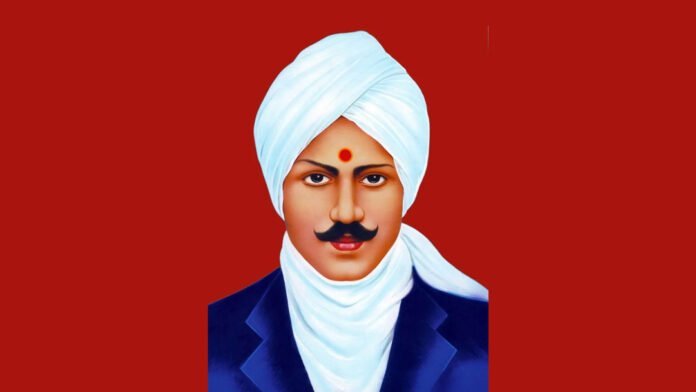Mahakavi Bharathiyar, born Subramanya Bharathi, was a renowned Tamil poet, writer, and social reformer who lived in India during the late 19th and early 20th century. He is known for his inspirational and revolutionary poetry, which played a significant role in India’s struggle for independence. In this blog, we’ll explore the life and legacy of Mahakavi Bharathiyar.
Early Life
Mahakavi Bharathiyar was born on December 11, 1882, in Ettayapuram, Tamil Nadu. He was the eleventh child of Chinnaswamy Iyer and Lakshmi Ammal. Bharathiyar’s father was a Tamil scholar, and his mother was a devout Hindu who instilled in him a love for Indian culture and traditions. Bharathiyar showed an early aptitude for poetry and began writing at a young age. However, his formal education was limited, and he dropped out of school after completing the fifth grade.
Career and Contributions
Mahakavi Bharathiyar’s poetic genius was apparent from an early age. He began publishing his work in various Tamil newspapers and magazines and soon gained a reputation as a powerful and inspiring writer. His poetry covered a wide range of themes, from patriotism and social justice to love and nature. Bharathiyar’s works were often critical of British colonial rule and advocated for Indian independence. His poetry resonated with the Indian people, and he became a popular and influential figure in the Indian freedom struggle.
Bharathiyar’s contributions to Indian literature and society were significant. He was a strong advocate for women’s rights and education, and his poems often challenged social norms and traditional beliefs. He also promoted the use of Tamil as a literary language and was instrumental in revitalizing Tamil literature during his time. Bharathiyar’s poetry was a source of inspiration for many Indian leaders, including Mahatma Gandhi, and his words continue to inspire people today.
Legacy
Mahakavi Bharathiyar’s legacy is enduring. His poetry continues to be widely read and celebrated in Tamil Nadu and beyond, and he is revered as a national icon. In 1956, the Indian government issued a commemorative stamp in his honor, and in 1972, a statue of Bharathiyar was erected in the Indian Parliament complex. Bharathiyar’s contributions to Indian literature and society continue to inspire and influence generations of Indians today.


